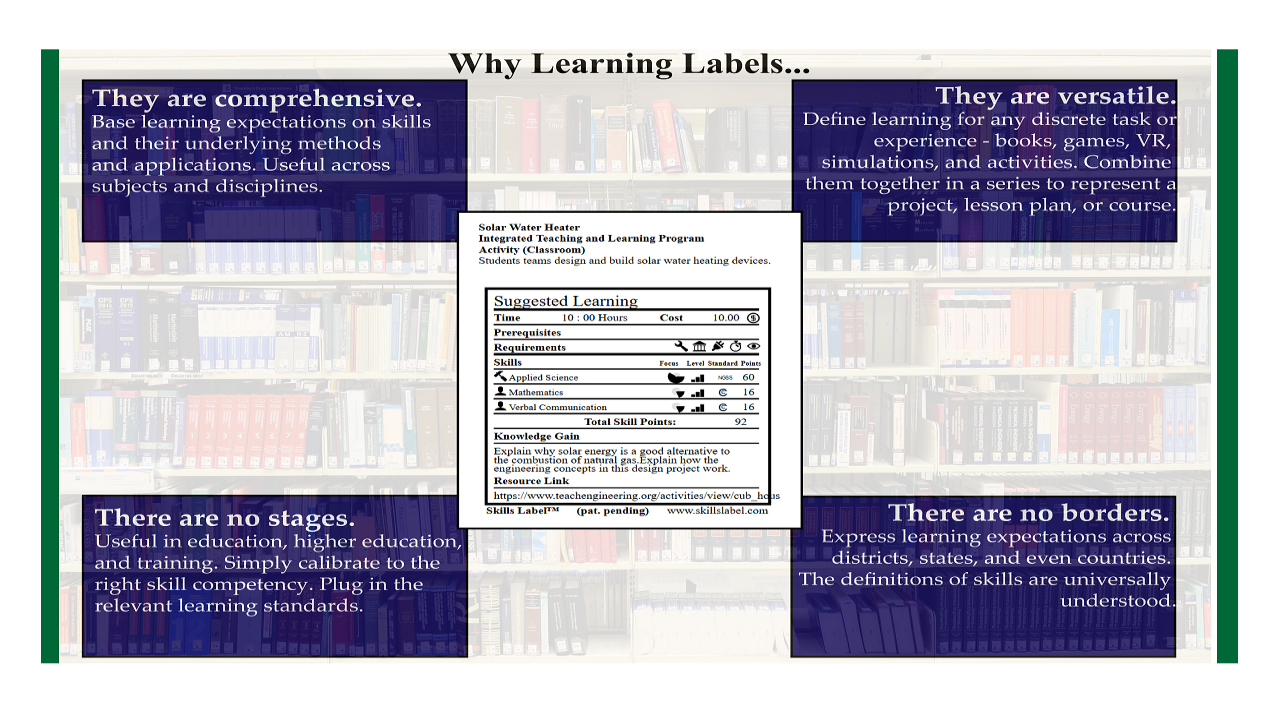In our digital connected economy, one big issue is access to technologies/ systems – what is open source versus proprietary. I often get asked:
Does your learning labels system use an open-source (skills) database? What learning or training standards are you using?
I know of two open-source skills databases, reviewed one of them years ago. (I thought) the composition fields were inundated, difficult for a layman to understand. A primary goal with the learning labels is to provide clear definitions to not only practitioners, but also young learners and workers – so the database was of not much use.
I did not look at the newer database yet. But the other reason why my team doesn’t simply jump on the open-source database (at least at this stage) is our algorithm to quantify skills (Skill Points). The algorithm would be significantly more difficult if it was forced to negotiate multiple interpretations of skill definitions.
Our position is probably not much different than LinkedIn, IBM, Google, and other companies who own proprietary skills databases. I think later, when our system is more mature, we might consider the openness companies access our skill database.
While building the learning labels system, I was constantly reminded of the presence of pre-existing and new standards in education, higher education, and training. Standards are entrenched in the learning process. I built referencing standards onto the learning labels to anchor the expectations.
The interface is designed to allow for practitioners to reference any set of standards they want to use (or create their own) to define learning in skills – a dynamic, responsive way to use standards. And this is how standards should work:
Authorities in the field create a set of standards. Practitioners create resources to apply them. Teachers, professors, and trainers deliver the resources referencing the standards.
At each step, the group’s reputation is on the line and there is room for correction. This is as opposed to our current emphasis on standardized tests and an accreditation process. (In my opinion) the effectiveness of the standards should not be based on the performance of the learners, nor should the approval process take too long (standards simply lose their relevance). The value of standards are points of reference.
So, with the learning label system, we do not use an open-source skills database. Currently we offer a basic API; as our system populates, we will look to provide expanded uses of the API to access skill definitions and Skill Points.
I think learning institutions look for the open-source database for a lower cost, control, and longevity. Learning labels system is:
- Currently free. Future subscription pricing suggested.
- Framework with considerable freedom to define learning.
- Intact. Subject of three patent applications in the last six years.
Our system does support education, higher education, and training standards. Some of the standards are already built into the learning labels system, others could be added upon request, and there is functionality for new custom ones to be added. Only requirement is permissions or rights to use them.
